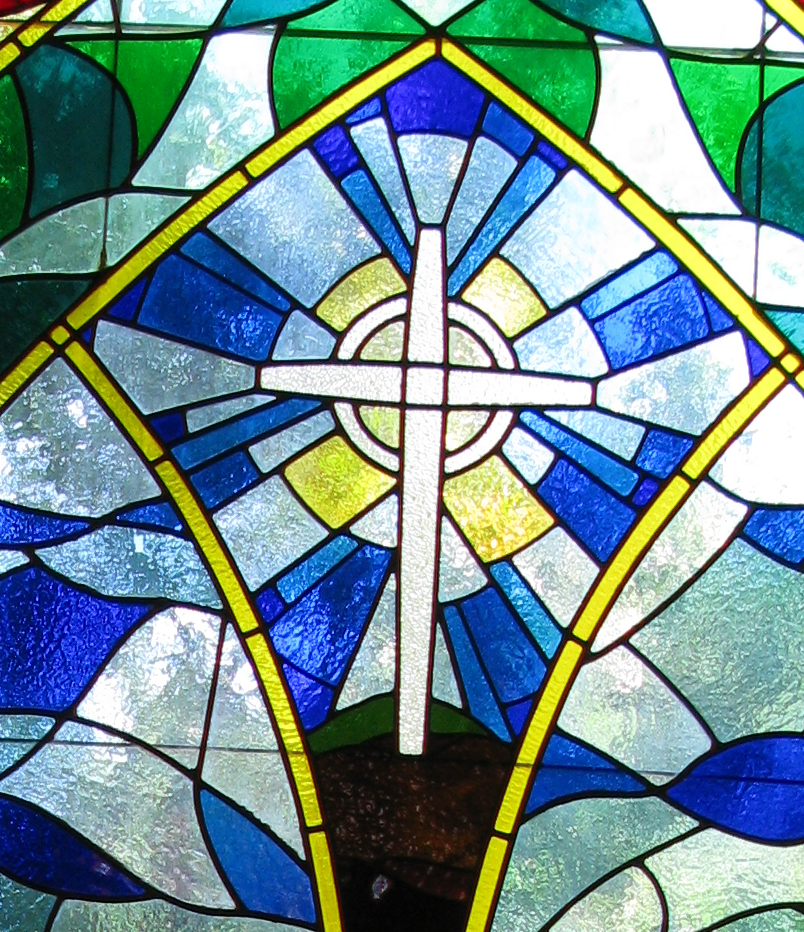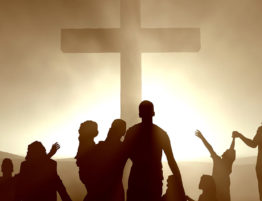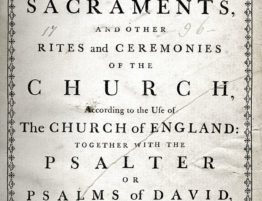
“Alleluia! Christ is Risen! He is risen indeed! Alleluia!”
This is the traditional greeting and response for the Easter season. We are here today to celebrate our Lord’s Resurrection. Indeed, there is a sense that every Sunday is a commemoration of the Resurrection, every Sunday is a little Easter. But Easter Sunday is that great feast, the Feast of Feasts. After all, if it weren’t for the Resurrection, we might as well all pack it in and go home. In his poetic Easter homily, St. John Chrysostom wrote:
Is there anyone who is a devout lover of God?
Let them enjoy this beautiful bright festival!
Is there anyone who is a grateful servant?
Let them rejoice and enter into the joy of their Lord!
Many of you will have celebrated dozens of Easter Sundays. Many of you will have observed the Lenten journey of Fast and Repentance each of those. For some of you Easter may be relatively new, and you may have never heard of Lent until now. Regardless of whether you’re new to Easter or an old veteran of the Church Year, this is a time for all Christians to enter into the Joy of the Lord. Later in his poem, Chrysostom writes:
Let no one grieve at his poverty,
for the universal kingdom has been revealed.
Let no one mourn that he has fallen again and again;
for forgiveness has risen from the grave.
Let no one fear death, for the Death of our Savior has set us free.
He has destroyed it by enduring it.
On Good Friday we remembered our Lord’s death on the Cross. We read about his sacrifice for us. We contemplated his broken body and shed blood, slain for sinners like you and me. At the beginning of our service today, we recited our Lord’s teaching in the Summary of the Law:
Hear what our Lord Jesus Christ saith.
Thou shalt love the Lord thy God with all thy heart and with all thy soul, and with all thy. mind. This is the first and great commandment. And the second is like unto it; Thou shalt love thy neighbor as thyself. On these two commandments hang all the Law and the Prophets.
Because we have and continue to violate God’s Law, we had fallen under the Law’s Divine Curse. But Christ paid our penalty, dying in our place, so that we would become new creatures, given Christ’s righteousness, and reconciled with God. The fact the Jesus rose again is the proof that this has indeed happened. And when we are brought to Christ by faith, the blessing of the Cross and Resurrection is applied to us.
An ancient tradition in the Church was to sing a selection of Scriptures known as the “Pascha Nostrum” at the beginning of morning prayers during the Easter Season. In our Prayer Book we retain this tradition during the Octave of Easter by singing the Pascha Nostrum instead of the Venite during Matins. You can find the Pascha Nostrum on page 162 of your Prayer Book. It begins with 1 Corinthians 5:7:
Christ our Passover is sacrificed for us: therefore let us keep the feast,
Not with old leaven, neither with the leaven of malice and wickedness; but with the unleavened bread of sincerity and truth.
This tells us that the Death and Resurrection of Christ has implications for the Christian life. We are indeed new creatures, born again, regenerate, and we are supposed to live as such. Not because we are earning our new life by new living. Rather, because we have new life, we live in a new way; we have been enabled by the Holy Spirit to be who we really are: Sons of God, adopted into Christ’s family, made co-heirs with our Lord.
This new birth is ours by the free gift, the grace, of our Lord. In our Collect we prayed:
Almighty God, who through thine only-begotten Son Jesus Christ hast overcome death, and opened unto us the gate of everlasting life; We humbly beseech thee that, as by thy special grace preventing us [i.e. going before us] thou doest put into our minds good desires, so by thy continual help we may bring the same to good effect; through the same Jesus Christ our Lord, who liveth and reigneth with thee and the Holy Ghost ever, one God, world without end. Amen.
This is why Chrysostom told us not to grieve our spiritual poverty, mourn if we fall and rise again and again, or fear death: Christ’s grace is bigger than our failures. Christ’s grace is stronger than death. Christ’s grace blazes the trail, going before us, and leading us into Christ’s Kingdom and Glory, leading us through the gate of everlasting life.
In our Epistle for the day, St. Paul describes what it looks like for this “preventing” grace from God to bear fruit in “good desires” that are brought “to good effect.” Please turn in your bibles to Colossians 3:1 (page 164 in your Prayer Book):
If then you have been raised with Christ, seek the things that are above, where Christ is, seated at the right hand of God. Set your minds on things that are above, not on things that are on earth. For you have died, and your life is hidden with Christ in God. When Christ who is your life appears, then you also will appear with him in glory.
Notice the progression here: “If then you have been raised with Christ…” This is the condition of everything else. Italian Reformer Peter Martyr Vermigli wrote, “Just as Christ drew us with him into death and burial through baptism, so he has also brought us out to life.” If you doubt whether you have been raised with Christ, remember your baptism. Indeed, this is why we have the holy water fonts at the front of the church: when we splash ourselves with the water in the sign of the cross as we enter the chapel, we are reminded of our death and resurrection in Christ signified in baptism.
The progression continues: “If then you have been raised with Christ, seek the things that are above, where Christ is, seated at the right hand of God.” If you’re a baptized Christian, put your focus on Christ and his kingdom. Swiss Reformer John Calvin wrote: “Ascension follows resurrection. Therefore, if we are the members of Christ we must ascend into heaven, because after being raised up from the dead, he was received into heaven, so that he might draw us up with him.”
Though we continue to live in this fallen world, it is no longer our main focus, our main priority. Our Lord said that we are not of this world, yet he specifically prayed that we would not be taken out of it (John 17:14-15). English Reformer John Davenant wrote:
We must observe that Paul forbids us to seek and relish earthly things, but he does not forbid us to use earthly things, much less to obtain them.
Yes, we still must deal with everything it means to be in this fallen world. Yes, we are called to do good in it and live within our earthly calling, whether that is family life, work life, ministry life, etc. But in all of these things, we live differently than those who are of the world. Why? “For you have died, and your life is hidden with Christ.” And here is the paradox of the Christian life: we are dead but we are alive. We are dead to sin, dead to our flesh, dead to the world. But we are alive in Christ. We are alive eternally. Even if we should be slain, we have the promise of Resurrection. Christ’s own Resurrection is a down payment of ours, and we will have it in full when he returns: “When Christ who is your life appears, then you also will appear with him in glory.”
Perhaps you find yourself seeking those earthly, fleshly, worldly things, despite your baptism, despite your profession of faith in Christ. The Lord invites you to repent. he invites you to literally re-think and turn from your sin, to turn to him instead. Accept his forgiveness and come to his Table, just as the Prodigal Son was embraced and eagerly invited to the feast by his loving father.
Perhaps you find yourself struggling, trying to keep your eyes on Christ and his Kingdom, but wearied by the effort. Rejoice and remember that Christ was tempted as you are, and he will give you his strength. Again, come to his table that your spirit may be strengthened and revived, just as your body is strengthened and refreshed by a hearty feast.
Perhaps you have never repented, never been baptized, and are not yet a Christian. Hear Jesus calling you to take up your cross and follow him. Accept his invitation to forgiveness of sins, new birth, and eternal life.
For all of us, remember that Easter is the reminder of Christ’s victory when he proved that he is indeed the King, sovereign over all creation, whom death could not stop and hell could not overcome. I give the final words again to St. John Chrysostom:
Christ is Risen, and you, o death, are annihilated!
Christ is Risen, and the evil ones are cast down!
Christ is Risen, and the angels rejoice!
Christ is Risen, and life is liberated!
Christ is Risen, and the tomb is emptied of its dead;
for Christ having risen from the dead,
is become the first-fruits of those who have fallen asleep.To Him be Glory and Power forever and ever. Amen!




